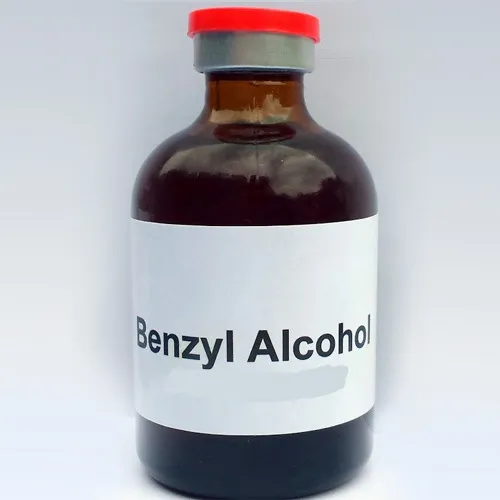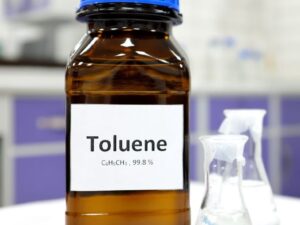Description
Benzyl Alcohol: A Versatile Compound with Applications Across Industries
Benzyl alcohol, a colorless liquid with a mild, pleasant odor, is a versatile aromatic alcohol that finds widespread use in various industries. Its unique properties, including its solvency, low volatility, and relatively low toxicity, make it a valuable ingredient in numerous applications, ranging from pharmaceuticals to cosmetics and beyond.
Chemical Properties and Production:
Benzyl alcohol, with the chemical formula C₇H₈O, is a relatively simple molecule. It features a benzene ring attached to a methylene group, which in turn is bonded to a hydroxyl group (OH). This structure lends itself to a combination of aromatic and aliphatic properties, contributing to its solvent power.
Commercially, benzyl alcohol is produced via several methods, including:
- Hydrolysis of benzyl chloride: This is a common and efficient method where benzyl chloride is reacted with a base in the presence of water.
- Hydrogenation of benzaldehyde: Benzaldehyde, another important aromatic compound, can be reduced to benzyl alcohol using hydrogen and a metal catalyst.
- Cannizzaro reaction of benzaldehyde: This reaction involves the base-induced disproportionation of benzaldehyde into benzyl alcohol and benzoic acid.
Applications Across Industries:
Benzyl alcohol’s versatility stems from its unique combination of properties. Here’s a look at some of its key applications:
- Pharmaceuticals: Benzyl alcohol is widely used as a solvent for pharmaceutical formulations, particularly for injectable medications. Its low toxicity and compatibility with other ingredients make it a suitable choice. It also acts as a bacteriostatic preservative, inhibiting the growth of microorganisms in multi-dose vials.
- Cosmetics and Personal Care Products: In the cosmetics industry, benzyl alcohol serves as a solvent, fragrance ingredient, and preservative. It helps dissolve other ingredients, imparts a pleasant scent, and prevents spoilage in a wide range of products like lotions, creams, sunscreens, and shampoos.
- Paints and Coatings: Benzyl alcohol acts as a solvent and viscosity reducer in paints, inks, and coatings. It improves the flow and leveling properties of these products, resulting in a smoother and more even finish.
- Industrial Uses: It is utilized as a solvent for various materials like resins, waxes, cellulose esters, and casein. Its solvent properties also make it useful in cleaning and degreasing applications.
- Epoxy Resin Formulations: Benzyl alcohol acts as a diluent and viscosity modifier for epoxy resin systems, improving their processability and reducing their brittleness.
- Chemical Intermediate: Benzyl alcohol serves as an important intermediate in the synthesis of other chemical compounds, including benzyl esters, benzyl ethers, and pharmaceuticals.
Safety Considerations:
While benzyl alcohol is generally considered to be of low toxicity, it’s essential to handle it with care. Direct contact with the skin or eyes can cause irritation. Ingestion or inhalation of high concentrations can lead to adverse effects. Appropriate personal protective equipment (PPE), such as gloves and eye protection, should be used when working with benzyl alcohol. Always consult the Safety Data Sheet (SDS) for detailed information on handling, storage, and safety precautions.
Environmental Impact:
Benzyl alcohol is considered biodegradable and does not generally persist in the environment. However, it’s crucial to dispose of waste containing benzyl alcohol responsibly, following local regulations and guidelines.
Conclusion:
Benzyl alcohol is a valuable and versatile industrial chemical with a wide range of applications. Its unique combination of properties, including its solvency, low volatility, and relatively low toxicity, makes it an essential ingredient in various industries. From pharmaceuticals and cosmetics to paints and coatings, benzyl alcohol plays a significant role in enhancing product performance, stability, and safety. As research and development continue, new applications for this versatile compound are likely to emerge, further solidifying its importance in the chemical industry.













Reviews
There are no reviews yet.